In the last couple of months the media has been full of coverage of the activities of the terrorist group Islamic State (ISIS). Although the most high profile content released by the group has made it onto major news networks what many people don’t realise is that there are more than 1,000 pieces of content being digitally distributed by the group every week, much of which (thankfully) doesn’t reach the majority of the public. ISIS surprised many people when it started using social media sites like YouTube and Twitter to spread its propaganda but this has not been going unchecked and these organisations are now locked into an ongoing battle with ISIS to prevent the majority of the content that the group would like to post getting the desired reach – and the focus of the new battleground? The hashtag. The strategy so far has been to block the offensive content and then to delete it. This could be anything from photos of murder, torture and suicide missions to spoken propaganda like the ‘Lend Me Your Ears’ video of British photojournalist John Cantlie. However, ISIS appears to have a fairly technology savvy approach and this means that the likes of Twitter and YouTube are having to go one step further in terms of strategy to defeat this ongoing onslaught of content. This is because, unlike most others before it, ISIS clearly understands the fact that the only way it can successfully distribute the content far and wide is to deliver it quickly to a large number of people i.e. before Twitter or YouTube spot the content, shut the account down and delete all the posts. In order to do this the group has been using random Twitter accounts and little known sites that allow anonymous uploading of images and videos – of which there are plenty. However, although these are doorways for getting the content online it’s been the recent distribution strategy that has surprised many. For example, during the recent vote on Scottish independence ISIS began piggybacking on the hashtags #andymurray, #scotland, #scotlandindependence, #VoteNo and #VoteYes. The propaganda operative Abdulrahman al-Hami – whose account has now been suspended – advised followers and supporters to jump on hashtags as soon as they became popular and also to make use of the accounts of famous celebrities with millions of followers. Britain’s counter-terrorism internet referral unit is asking members of the public to flag up any extremist content that they come across online as soon as possible in order to try and prevent it from spreading but this new approach of jumping on trending topics could be hard to police. This is particularly the case given that the group isn’t just using the hashtags randomly but is attempting to make them relevant to the content they’re posting, presumably to make it less obvious that the content doesn’t directly relate to the hashtag to prevent it being spotted more quickly. We all know that the versatility of social media opens it up to this kind of abuse but the hijacking of hashtags in this way is something few of us could have predicted. The hope is that the brains at Twitter and YouTube, in cooperation with the authorities, will be able to find a new way to defeat this kind of digital propaganda and perhaps even begin to beat groups like ISIS at their own game, without compromising wider rights to free speech in the process.
Related Posts
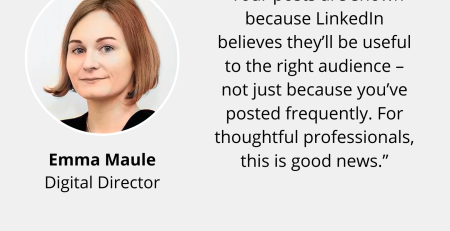
How to succeed on LinkedIn in 2026
Our Digital Director Emma Maule outlines the recent changes on LinkedIn and explains how to remain visible in 2026. If... read more

What’s brewing on LinkedIn? The 360Brew AI update explained
Our Digital Director Emma Maule explains the latest LinkedIn update you need to be aware of - 360Brew -... read more
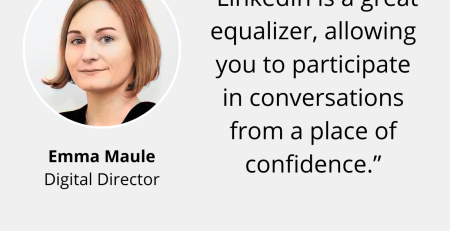
LinkedIn: the great equaliser
Our Digital Director Emma Maule reports from the massive 500-person social media webinar run by the IBA over the summer What... read more
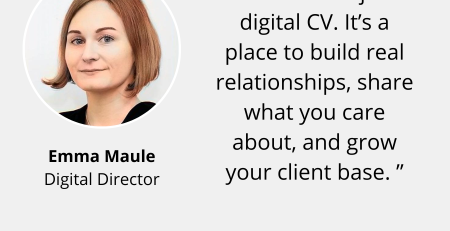
How to use LinkedIn as a business development tool for lawyers
Our Digital Director Emma Maule shares her top tips on how to supercharge your BD efforts by making the most... read more
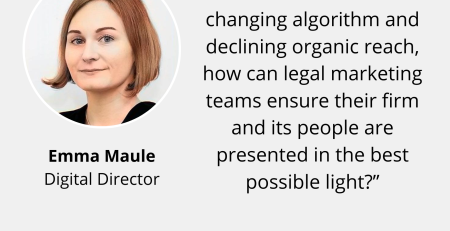
Law firm marketing teams and LinkedIn – insights from the new algorithm report
Our Digital Director Emma Maule considers what in-house law firm marketing teams can learn from the new algorithm report. LinkedIn... read more
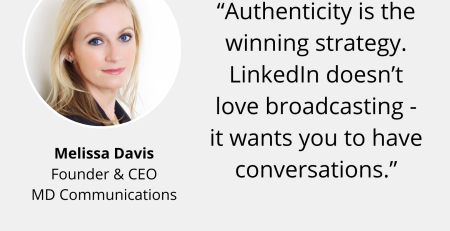
Top level insights from the LinkedIn algorithm report
Our CEO Melissa Davis discusses the initial insights emerging from Richard van der Blom's new LinkedIn algorithm report, and... read more

WhatsApp groups: Friend or foe for your reputation (and your sanity)?
Our CEO Melissa Davis discusses the perils and pitfalls of WhatsApp groups, and looks at how you can mitigate... read more
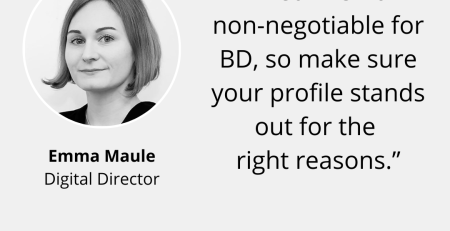
LinkedIn resolutions for 2025
Our Digital Director Emma Maule reveals her top tips for upping your LinkedIn game in 2025. New year, new you?... read more
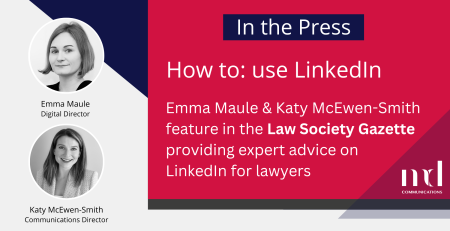
LinkedIn for lawyers: Emma Maule and Katy McEwen-Smith featured in the Law Society Gazette
Digital Director Emma Maule and Communications Director Katy McEwen-Smith have been featured extensively in the Law Society Gazette... read more

Check in on your social media resolutions
Digital Director Emma Maule outlines some handy LinkedIn tips to boost your online presence. Now that Q2 is in full... read more

